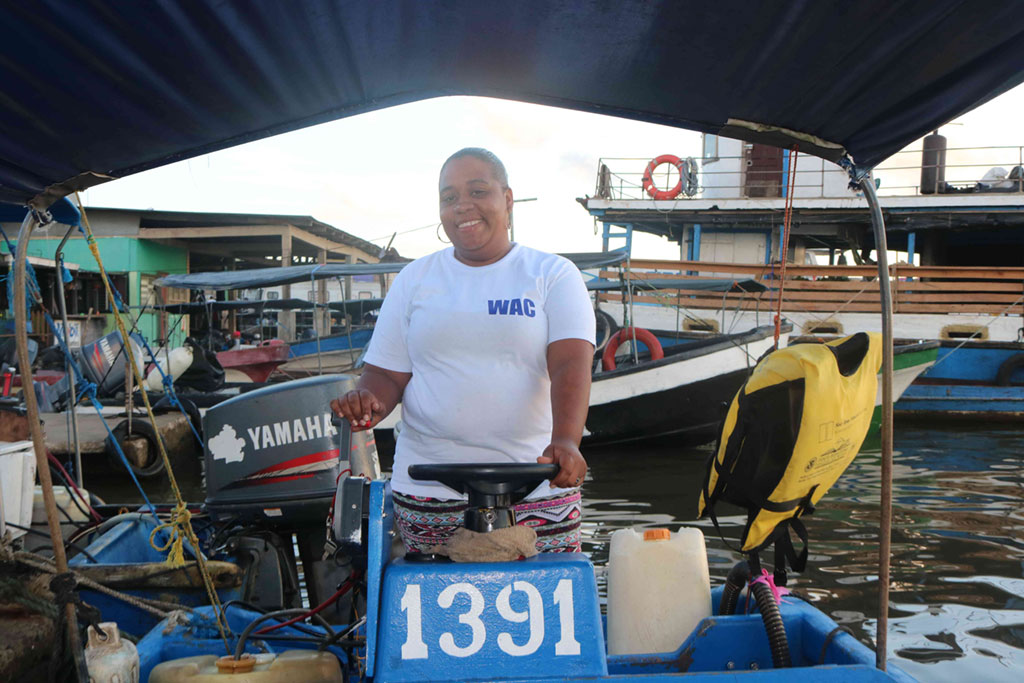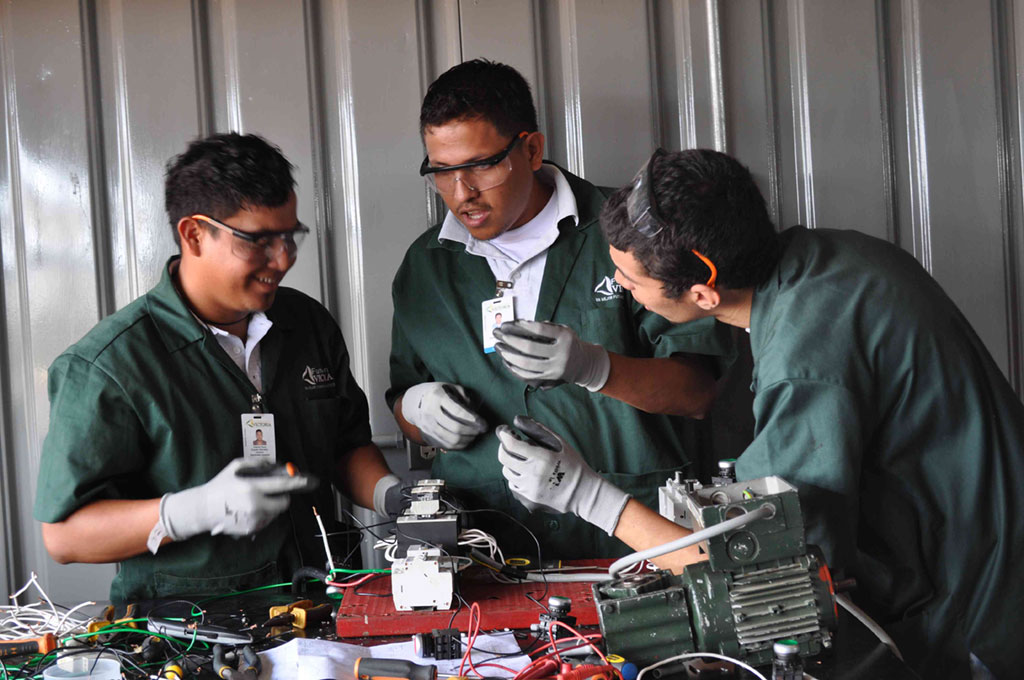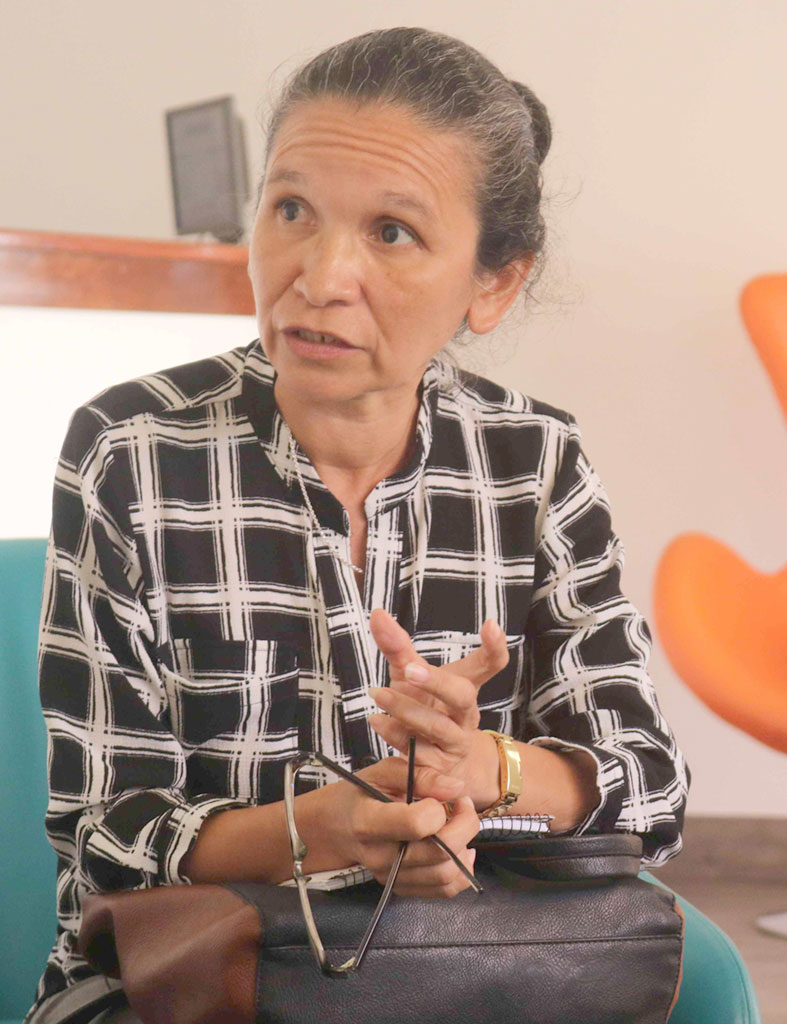MANAGUA, Nicaragua – In a hotel conference room, representatives from more than 30 business associations, technical vocational education and training institutes, universities and non-governmental organizations, are sowing the seeds for transformative economic change. What they discuss here may lead to jobs for thousands more youth and growth for companies on the Pacific and Caribbean coasts of the country.
It is a pivotal meeting for the newly formed Nicaraguan Network for Technical Education (known by its Spanish acronym RENET) as it lays out its strategy for the next several years.
“We, as the private sector, are always saying we need to be more productive, we need to be more innovative and to have more competitiveness. But if we don’t invest in technical education, we won’t be able to realize these goals,” says Juan Carlos Amador, Executive Director of Chamber of Industries of Nicaragua.
This network, the first of its kind in the country, was formed by the private sector and educational institutes through a partnership with the Technical Vocational Education and Training Strengthening for At-risk Youth project, known in Spanish as “Aprendo y Emprendo.”
"We, as the private sector, are always saying we need to be more productive, we need to be more innovative and to have more competitiveness. But if we don’t invest in technical education, we won’t be able to realize these goals." Juan Carlos Amador, Executive Director of Chamber of Industries of Nicaragua
Funded by the U.S. Agency for International Development and implemented by Creative Associates International, the project aims to expand opportunities for technical training and entrepreneurship for at-risk youth from the country’s Caribbean Coast region, which is home to some of the most marginalized and at-risk populations.
When youth have access to in-demand training and employment or entrepreneurship opportunities, they are less likely to engage in drugs, gangs or crime, are less susceptible to teen pregnancy, and are less likely to migrate in search of opportunity, say project staff.
To achieve this goal, project staff say it is key to ensure that the curriculum of technical vocational education and training institutes align with employers’ demands for skilled new hires. This is where the Network plays a critical role.
“We need to build a bridge between the private sector, the academic sector and the government. This is one of the main focus on why we started this network. We believe if we want to make real change, we must but involve the coordination of all of the actors,” says Amador, representing the private sector in the national network.
A similar, smaller regional network has been formed among employers, training institutes, universities and local non-governmental organizations in the Caribbean Coast region.
Matching training curriculum to the market
Before the creation of the Nicaraguan Network for Technical Education, there was little avenue for regular communication between technical and vocational training institutes and the private sector, says Juan Ramon Contreras, instructor of the La Salle Technological Institute in Leon, a Network member.
“Before the creation of RENET, we as technical and vocational institutions did not have a connection with the private sector at the national level,” says Contreras.

Educators tasked with preparing the next graduating class of technicians to enter and succeed in the job market had little evidence-based information about the skills employers desired, leaving a vacuum of vacant positions and unemployed graduates.
According to Nicaragua’s Survey of Sustainable Enterprises in 2015, 59 percent of companies with more than 100 workers reported difficulties finding skilled labor, and the problem was even more pronounced along the Caribbean Coast. The survey also showed that 93 percent of the “hardest-to-fill” positions in the region required technical and vocational education and training.
While the private sector faced a notable gap in supply of skilled potential employees, a lack of communication channels meant that training institutes did not know how to respond to address the need.
“For example, we have a lot of technical careers and have found in Nicaragua that we have to import people from abroad to fulfill those needs. And this is a major problem since we have a lot of academic institutions that have given a lot of training to people but that offer is not aligned with the private sector,” says the Network’s leader, Juan Carlos Amador.
With the creation of the Network, employees and training institutes are optimistic about opening the channels of communication to bridge this gap.
Changing perceptions about technical education
A major priority of the Network is to raise the public profile of technical education. While employers are seeking potential recruits with technical skills, the majority of youth place more value on a university degree.
A 2016 USAID survey of youths’ perceptions of technical education, conducted by Aprendo y Emprendo in the southern Caribbean region, found that 72.7 percent of the 400 youth polled in a demographically representative sample said they would prioritize a university degree compared to just 16.7 percent aspiring to a technical-level education.

More than three-fourths of youth thought a university education would lead to a better career—unaware of the numerous vacancies reported by employers looking for technically skilled workers.
“We need to promote technical education more. For the general population, the assumption is that to follow a professional path [is better],” says Henningston Omeir, General Vice Rector of the Bluefields Indian and Caribbean University, a member of the Network and host to 100 students on technical scholarship through Aprendo y Emprendo.
“I think it’s a great opportunity, but it’s not an easy job: changing a cultural belief about technical and professional careers,” he adds.
Amador, the Network’s Chair, says the group has already started gaining ground in public opinion and has amplified and multiplied the voices promoting technical education at the national and local level.
A voice for the Caribbean Coast
For members of the Network hailing from the Caribbean Coast region, far from the capital, this is valuable chance to bring the voices of Caribbean students, institutes and business into the national dialogue.
“It is important for the Caribbean Coast to be part of the dialogue and at the center of it,” says Diala Lopez Lau, Vice Rector of the University of the Autonomous Regions of the Nicaraguan Caribbean Coast in Bluefields.

In a region with greater levels of risk for youth unemployment and fewer opportunities for higher and technical education, Caribbean-based training institutes and the private sector are eager to build capacity and connections to improve the outlook for youth and businesses in the region and to have their interest heard in a national forum.
Lopez Lau and her fellow Caribbean Coast members in the Network are enthusiastic about what the group will achieve and optimistic about its longevity.
“Being part of the program from the beginning and being able to collaborate is important,” she says. “We will be able to have sustainability and [create] an education round table for discussion so we can integrate even more organizations.”
With reporting by Gretchen Robleto.
